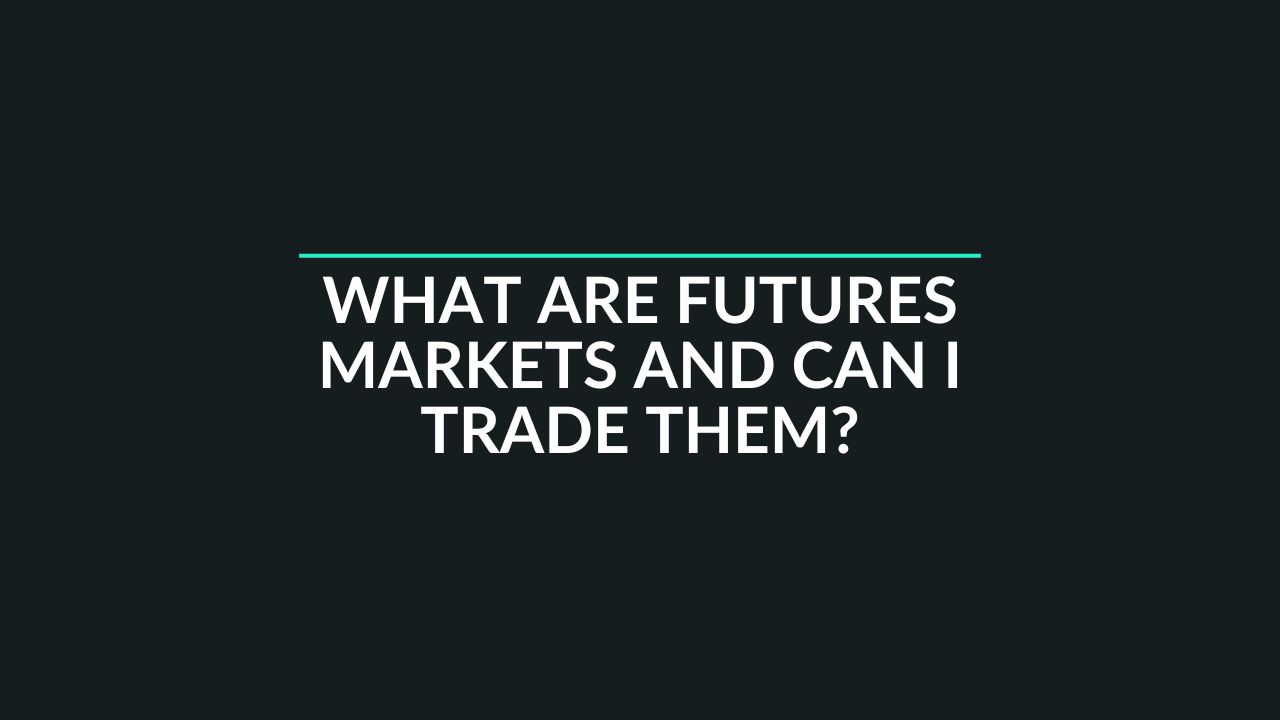What Are Futures Markets and Can I Trade Them?

A futures contract is an agreement between a buyer and a seller where they decide on a price for a particular asset now, even though they will actually complete the transaction at a set date in the future. This set date is also known as the expiration date.
Each futures contract is linked to an "underlying asset," which could be almost anything that’s traded. They are very common in commodity markets like oil, gold, or wheat, but they’re also used for many other markets like the S&P 500, cryptocurrencies, forex and even interest rates.
Expiration Dates and Settling Futures Contracts
If you're looking to trade a specific futures market, you’ll notice your broker will often have many different options for you to choose from, usually with a bunch of different dates.

Unlike stocks, which you can hold indefinitely, a futures contract expires at a specific date and time. Your broker is showing you all the different expiry dates for each contract.
These could be monthly, like for crude oil, or every three months, like for many stock index futures. The contracts nearest to expiration, called “front month” contracts, are the ones that are usually most actively traded.
Most people who trade futures don’t want to actually receive the physical product (like barrels of oil) or deliver it. So, they close or “settle” their trades before expiration by selling or buying back the contract. If an investor forgets to close their contract before the expiration, and they can’t take or deliver the underlying asset, they could be hit with some hefty fees!
Luckily, many trading platforms also offer automatic rollover, which shifts a position to the next available contract as one expires, or they may just automatically close the position.
Contract Sizing
Each futures contract also has a specific size, which represents the amount of the asset being traded.
For example, if you’re trading crude oil, each standard contract typically represents 1,000 barrels of oil. This large contract size can be daunting, especially for retail traders with smaller accounts.
To make trading more accessible, many markets offer smaller versions of standard contracts, known as "mini" or "micro" contracts. It’s also common to access futures markets using other derivatives. For example, many brokers in Europe offer CFD trading on futures contracts which also makes them more accessible.
Market Hours
One of the convenient features of futures markets is that they are open almost 24 hours a day, five days a week, which gives traders a lot of flexibility. Whichever time zone you’re trading in, you can access futures.
However, each market has specific peak hours, known as “Regular Trading Hours” (RTH), when activity and trading volume are highest. For example, the E-mini S&P 500 sees the most activity during U.S. market hours. Outside of these hours, trading can be less active, so price movements might be slower or more volatile.
Are Futures Suitable for Trading?
Yes, futures can be traded. However, we’d recommend sticking to the most liquid assets, and front-month contracts as less popular ones tend to have higher transaction costs. If possible, it’s also better to trade them during their regular trading hours, as the market will be most active during that period.
Here are some popular futures markets you may want to start with:
- S&P 500
- Nasdaq
- Crude Oil WTI
- Gold
- Silver
- Corn
- Soybean
- Euro
- Japanese Yen
- US Treasuries

